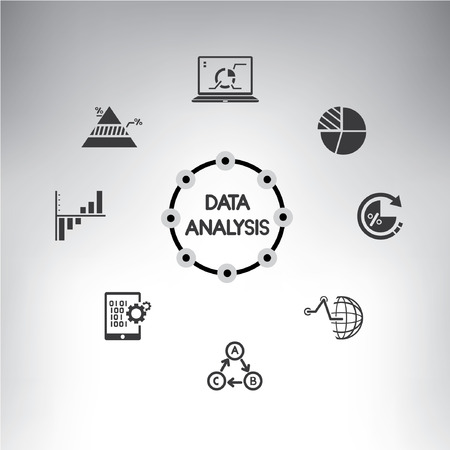This year’s Human Capital Trends Survey from Deloitte[1]was released last week and again, people analytics featured prominently.
According to the report, 71% of companies now regard people analytics as a high priority for their organisation with nearly one third (31%) ranking it as very important. The challenge for most hiring functions is their ‘readiness’ for analytics. Deloitte notes that only 8% have usable data.
Recruitment is the number one area of focus for analytics and as the UK faces the prospect of a skills crisis, HR must begin to integrate people analytics into its talent management processes. Recruitment software is the first step to achieving that. Here’s how:-
Data driven business decisions : Technology saves time and enhances the decision making process across your business, not just within HR. An article in the Harvard Business Review estimates that ‘about 25% of CEOs’ time is currently spent on activities that machines could do, such as analysing reports and data to inform decisions’. The data provided by your recruitment software is one of HR’s biggest allies in driving effective decisions across your business.
Faster recruitment : Deloitte’s Human Capital Trends report found that 61% of CEOs don’t believe they are recruiting ‘fast enough or well enough’. Concerns include social media, creating an effective employer brand and the data driven nature of the hiring process. Today’s recruitment software takes care of those essential elements to reduce your time to hire and engage with qualified applicants throughout the hiring process, from the point at which they enter your recruitment funnel.
A revived candidate experience : Recruitment software revives your candidate experience through online testing, candidate self-assessment and interview scheduling. Nearly half of all candidates wait up to two months for a response from the employer. HR technology takes care of this vital aspect of the process enabling automated personalised engagement with the talent in your pipeline..
Understanding your quality of hire : Your quality of hire is the most important metric for your business but less than a quarter of UK businesses are confident in their ability to measure it. Again, analytics in your recruitment data predict the people most likely to excel among your new hires – the high achievers that will drive your business growth and help to attract more talent to your business.
Improved retention levels : Used effectively, analytics helps you to identify the 'at risk' talent in your organisation, enabling HR to target resources in order to improve retention levels. Only 10% of UK workers are ‘completely satisfied’ in their jobs making 90% of your workforce a potential flight risk.
Predict future skills gaps : With the data in your recruitment software, HR is able to evaluate information to predict the future skills gaps in your business. As Brexit continues to cause uncertainty in hiring plans your priority must be a pro-active approach to talent acquisition and a willingness to adapt rapidly to changes in the workforce and employment market.
Reduced potential for error : Recruitment metrics provided by HR software provides insight based on your historical hiring patterns to reduce the risk of errors in your hiring process. The introduction of anonymised CVs and graduate filters through your applicant tracking software helps to reduce the potential for unconscious bias but ongoing analysis is advised. An article in the Financial Times suggests that data driven algorithms have the potential to learn these recruitment biases by identifying historical patterns of bias and reproducing them.
It enables HR to respond to change : The move to cloud based software is one of the key HR tech trends for 2017. Modern recruitment software is mobile responsive and delivered through the cloud, offering HR more flexibility, agility and scalability to respond to the needs of the business – and take a step towards people analytics.
Technology propels your business forward : Nearly half of UK employers are not dealing with the impact of AI and automation on their businesses. The benefits for automation, according to the Harvard Business Review are ‘better, smarter, error-free outcomes, along with innovation, productivity, and growth’ Given the low productivity levels in the UK workforce, investment in HR technology can only be a positive step forward for HR.
Advorto’s recruitment software provides workflow and structure across the entire hiring process, offering a dynamic database of candidates and analytics. Used by some of the world’s leading organisations, it provides a straightforward first step into HR analytics and big data. Start your 30 day free trial today.
You might also like to read:-
Is Your Talent Acquisition In La La Land?
8 HR Technology Terms Your Business Needs Today
Image Credit : 123rf.com/profile_ppbig
[1] https://dupress.deloitte.com/dup-us-en/focus/human-capital-trends.html






